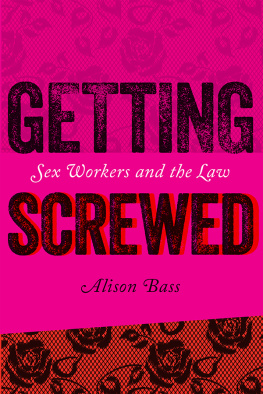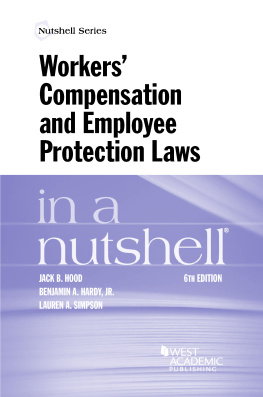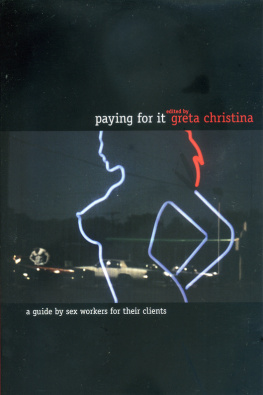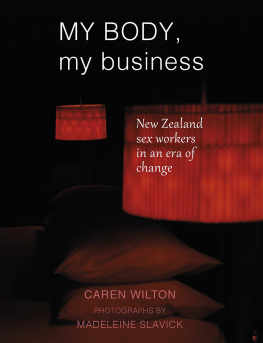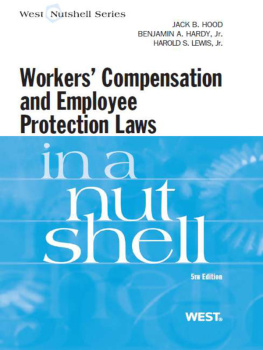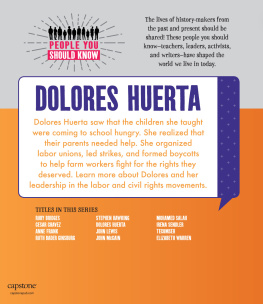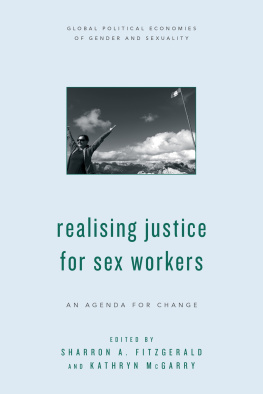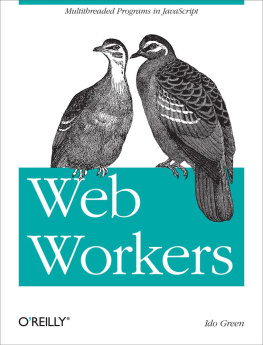Alison Bass - Getting Screwed: Sex Workers and The Law
Here you can read online Alison Bass - Getting Screwed: Sex Workers and The Law full text of the book (entire story) in english for free. Download pdf and epub, get meaning, cover and reviews about this ebook. year: 0, genre: Science / Business. Description of the work, (preface) as well as reviews are available. Best literature library LitArk.com created for fans of good reading and offers a wide selection of genres:
Romance novel
Science fiction
Adventure
Detective
Science
History
Home and family
Prose
Art
Politics
Computer
Non-fiction
Religion
Business
Children
Humor
Choose a favorite category and find really read worthwhile books. Enjoy immersion in the world of imagination, feel the emotions of the characters or learn something new for yourself, make an fascinating discovery.
- Book:Getting Screwed: Sex Workers and The Law
- Author:
- Genre:
- Year:0
- Rating:4 / 5
- Favourites:Add to favourites
- Your mark:
- 80
- 1
- 2
- 3
- 4
- 5
Getting Screwed: Sex Workers and The Law: summary, description and annotation
We offer to read an annotation, description, summary or preface (depends on what the author of the book "Getting Screwed: Sex Workers and The Law" wrote himself). If you haven't found the necessary information about the book — write in the comments, we will try to find it.
Vivid narrative-driven account of how current U.S. laws against prostitution harm sex workers, clients, and society
Getting Screwed: Sex Workers and The Law — read online for free the complete book (whole text) full work
Below is the text of the book, divided by pages. System saving the place of the last page read, allows you to conveniently read the book "Getting Screwed: Sex Workers and The Law" online for free, without having to search again every time where you left off. Put a bookmark, and you can go to the page where you finished reading at any time.
Font size:
Interval:
Bookmark:
ACKNOWLEDGMENTS
This book could not have been written without the assistance of the sex workers whose lives I chronicle in these pages. I owe an enormous debt of gratitude to Margo St. James, Julie Moya, Jillian, Elle St. Claire, Joi Love, Madeleine Colette, Amy Lebovitch, Valerie Scott, Maxine Doogan, Carol Leigh, and the many other sex workers I spoke to in the course of doing research for this book. I am especially grateful to Julie Moya and Jillian, who gave me so much of their time and who generously put me in touch with others in the sex work community. I am also grateful to the researchers, community health professionals, human rights advocates, and law enforcement officials who helped me see the larger picture.
My heartfelt thanks to the friends and colleagues who took the time to read parts of my manuscript and offer feedback, including John Temple, Jim Harms, Benyamin Cohen, Daleen Berry, Lois Raimondo, Mary Kay McFarland, Shula Reinharz, and Karen Osborn.
I would also like to thank my editor, Phyllis Deutsch, whose incisive comments and support kept me focused and moving forward, and the excellent editing team at the University Press of New England.
Finally, I would like to thank my husband, Jim Palmer, whose love and support keep me smiling, and my two sons, David and Jake, who make me proud and show me what really matters.
For Carmen Rudy
and all the other sex workers
whose murders remain unsolved.

SELECTED BIBLIOGRAPHY
Abel, Gillian et al., eds. Taking the Crime Out of Sex Work: New Zealand Sex Workers Fight for Decriminalization. Bristol, United Kingdom: Policy Press, 2010.
Adler, Polly, A House Is not a Home. New York: Rinehart Books, 1953.
Albert, Alexa, Brothel: Mustang Ranch and Its Women. New York: Ballantine Books, 2001.
Bernstein, Elizabeth, Temporarily Yours: Intimacy, Authenticity and the Commerce of Sex. Chicago: University of Chicago Press, 2007.
Brents, Barbara G., Crystal A. Jackson, and Kathryn Hausbeck, The State of Sex: Tourism, Sex and Sin in the New American Heartland. New York: Routledge, 2010.
Clement, Elizabeth, Love for Sale: Courtship, Treating and Prostitution in New York, 19201945. Chapel Hill: University of North Carolina Press, 2006.
Dallas, Sandra, Fallen Women. New York: St. Martins Press, 2013.
Delacoste, Frederique, and Priscilla Alexander, eds., Sex Work: Writings by Women in the Sex Industry, 2nd ed. San Francisco: Cleis Press, 1987.
Gilfoyle, Timothy, City of Eros: New York, Prostitution and the Commercialization of Sex, 17901920. New York: W.W. Norton, 1992.
Glasscock, Carl B., Lucky Baldwin: The Story of an Unconventional Success. Indianapolis: Bobbs-Merrill, 1933.
Grant, Melissa Gira, Playing the Whore: The Work of Sex Work. New York: Verso Books, 2014.
Jaget, Claude, Prostitutes, Our Life. Bristol, United Kingdom: Falling Wall Press, 1980.
Kolker, Robert, Lost Girls: An Unsolved American Mystery. New York: HarperCollins, 2013.
Kuo, Lenore, Prostitution Policy: Revolutionizing Practice through a Gendered Perspective. New York: New York University Press, 2002.
Leigh, Carol: Unrepentant Whore: Collected Works of Scarlot Harlot. San Francisco: Last Gasp, 2004.
MacKell, Jan, Brothels, Bordellos and Bad Girls: Prostitution in Colorado, 18601930. Albuquerque: University of New Mexico Press, 2004.
Mellon, Deborah, The Legend of Molly bDam. Kellogg, Idaho: Maple Street Publishing, 1989.
Money, John, Lovemaps. New York: Prometheus Books, 1999
Nagle, Jill, ed., Whores and Other Feminists. New York: Routledge, 1997.
Roberts, Nickie, Whores in History. London: Grafton Press, 1993.
Seagraves, Anne, Soiled Doves: Prostitution in the Early West. Hayden, Idaho: Wesanne Publications, 1994.
Sterry, David Henry, ed. Hos, Hookers, Call Girls and Rent Boys. New York: Soft Skull Press, 2009.
Weisberg, D. Kelly, Children of the Night: Adolescent Prostitution in America. Lexington, MA: D.C. Heath, 1985.
Weitzer, Ronald, Legalizing Prostitution: From Illicit Vice to Lawful Business. New York: New York University Press, 2012.

The Madonna-Whore Divide
M aggie Hall, a golden-haired twenty-year-old from Ireland, stepped off a ship in New York City in 1873, eager to conquer a new world. Hall was well educated, outgoing, and beautiful, with pretty blue eyes and a contagious laugh. But like many female immigrants without family or friends in New York, she had trouble finding decent employment, so she ended up working as a barmaid in a Manhattan saloon. There, she met a good-looking bounder by the name of William Burdan, the scion of a wealthy family who had never worked a day in his life.
In 1870s New York, the Victorian double standard was firmly entrenched. While there was no dearth of entertainment striptease shows and brothels flourished alongside saloons, theaters, and expensive restaurants these venues catered almost exclusively to men, according while their wives and girlfriends stayed home. In the Victorian ethos, middle- and upper-class women were not supposed to enjoy sex; they were cast as Madonnas: pure, sexless creatures whom Victorian men could worship on a pedestal. Since this meant that some mens sexual desires could not be satisfied within the confines of marriage, these men turned to a class of women considered the polar opposite of Madonna: the Whore. Yet while it was acceptable for men of that era to frequent brothels, any woman who had sex outside marriage was deemed a whore.
At the same time, almost all the jobs available to women as the Industrial Revolution gathered steam in the nineteenth century were low-paying positions as servants, store clerks, barmaids, or garment-factory workers. Respectable (meaning middle- and upper-class) married women were not supposed to work, but according to Gilfoyle and others, many working-class women, both married and single, supplemented their income by selling sex.
Many did not view [prostitution] as a full-time occupation, Gilfoyle writes.
Other researchers also found that the careers of many prostitutes in the nineteenth century were short-lived. Many worked largely for economic reasons from their late teens to their early to mid-twenties, and then they got married or otherwise merged back into the communities from which they had come.
During the colonial era, prostitution largely existed on the fringe of so
Gilfoyle and others set this trend squarely in the context of the Victorian eras sharpening gender divide. Men wanted control over autonomous and sexually independent women, he writes. Violent gangs allied to the political machine used extortion, force and outright terror to ensure male hegemony over the profits of prostitution.
Indeed, Gilfoyle and others contend, such institutionalized violence is what gave rise for the first time to pimps. The women who ran brothels were forced to hire men for protection against gangs paid by Tammany Hall, and streetwalkers required pimps to protect them against physical assaults from both clients and police.
Even though prostitution offered women the chance to make a better living, it was a dangerous trade. According to the 1858 study by Sanger, approximately 40 percent of the prostitutes he surveyed said they had contracted syphilis or gonorrhea at least once. Many prostitutes also had to contend with violent clients. As Nickie Roberts writes in
Next pageFont size:
Interval:
Bookmark:
Similar books «Getting Screwed: Sex Workers and The Law»
Look at similar books to Getting Screwed: Sex Workers and The Law. We have selected literature similar in name and meaning in the hope of providing readers with more options to find new, interesting, not yet read works.
Discussion, reviews of the book Getting Screwed: Sex Workers and The Law and just readers' own opinions. Leave your comments, write what you think about the work, its meaning or the main characters. Specify what exactly you liked and what you didn't like, and why you think so.

